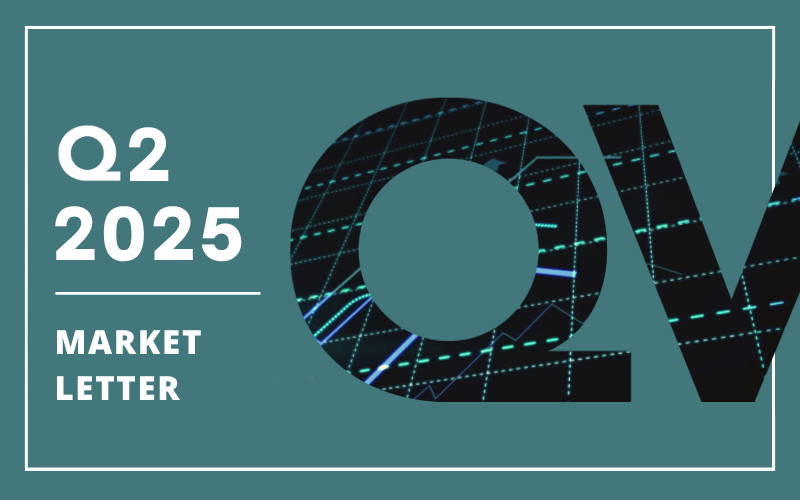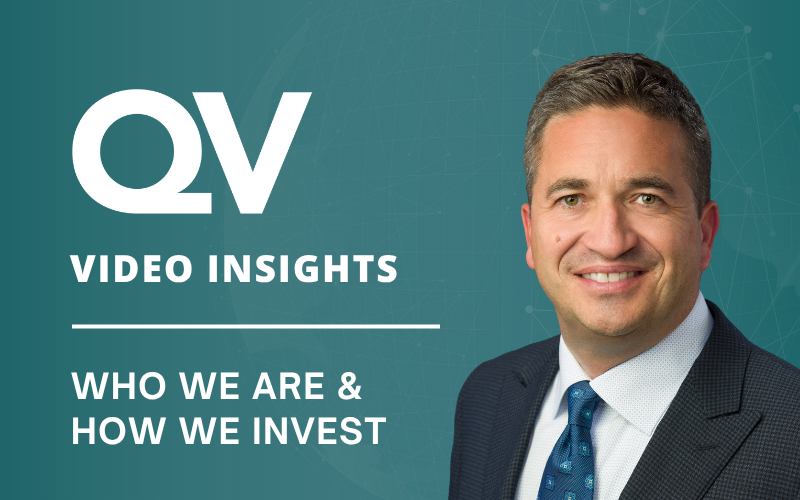Part of QV’s investment philosophy is that we own our investments for an ‘indefinite period’. In practice, our holding period is typically 3-5 years, or said differently, when considering a potential investment, our investment thesis is typically looking out over a 3-5 year time horizon. For example, looking at the portfolio turnover of the QV Canadian Small Cap Fund, it has averaged just under 22% per annum over the last 16 years (which would be equivalent to an average holding period of ~4.5 years). In comparison, the median of the peer group of small cap funds in Canada has averaged 38.9% turnover per annum since 2007. This can be seen graphically in the chart below:

Source: eVestment, QV Investors Small Cap Fund 2007-2022
Why does QV tend to maintain longer holding periods than the average peer investor and how do we capitalize on this longer-term mindset?
QV believes in the power of compounding. Charlie Munger once said that “the first rule of compounding [is to] never interrupt it unnecessarily”. What this means is that to truly harness the potential of compounding, one needs to have the conviction to hold over time. Letting the power of compounding work for you is only possible if you maintain an investment over time (and that investment continues to compound value).
Within the QV Canadian small cap strategy, despite an average annual turnover of ~22%, there are several businesses which we have owned for longer than 10 years. For example, our investment in Winpak Ltd. (TSX: WPK) has been maintained in the Canadian small cap strategy for over 12 years. Winpak manufactures and distributes packaging. The company has high-quality attributes including having maintained a return on equity of at least 10% per annum every year from 2009 to 2019 (COVID being the culprit that halted this trend, albeit Winpak’s return on equity was still 9.8% and 9.3% in 2020 and 2021 respectively). Furthermore, Winpak has maintained a net cash balance sheet throughout this entire period. To give a sense of how this compares to the Canadian small cap universe of stocks, only 19 companies have maintained a minimum 10% return on equity over the same 10-year period. Furthermore, only 4 companies have achieved this while maintaining net cash balance sheets the entire time. Importantly for this example, Winpak also demonstrated a record of compounding during the 2009 to 2019 period, growing earnings per share at a 10.4% CAGR. With the added contributory factor of valuation expansion, Winpak delivered an astounding 22% total annualized return during this timeframe!
While we recognize the compounding benefits of owning relatively high-quality investments for indefinite periods, there is also a layered focus on value that we must consider. While we have held and benefited from the compounding of Winpak for greater than a decade, the weight of the holding within the strategy has varied, predominately in response to the valuation. In other words, the price we had to pay for this record of compounding has varied, and with it, our weight in the holding:

Source: S&P Capital IQ and QV Investors, Winpak Ltd. Valuation 2011-2022
You will notice from the chart above that Winpak has experienced valuation compression, first occurring in 2017-18, and continuing throughout the pandemic. Beginning in 2017-18, Winpak experienced contractual changes with one of its largest customers which led to an earnings decline. This interrupted the consistent record of compounding mentioned earlier. Then the onset of the pandemic led to major volume shifts in customers, along with second-order effects impacting the business such as pervasive raw materials cost inflation. Taking a 3-5 year view, we saw these factors impacting the business as largely transitory. Importantly, other parts of the thesis remained intact (such as balance sheet strength). We increased the weight of the holding as the valuation was increasingly favourable.
The key is that we were focused on the medium-term potential of this business, recognizing its ability to compound over time. Other investors, playing a different game, may have not recognized the potential of Winpak over time and at the first signs of challenge, chose to sell. More recently, we have seen earnings trends begin to demonstrate the compounding history we’d come to expect:

Source: S&P Capital IQ, Winpak Ltd. EPS 2022
One final important consideration for the investment in Winpak is that we are invested alongside a management team and board of directors that truly think like owners. For example, the Chairman of the Board, Antti Aarnio-Wihuri, owns 52% of the company, while the current CEO and CFO have careers at the company that began well over 10 years ago. The business is therefore managed for the long run, with the compounding potential firmly in mind.




